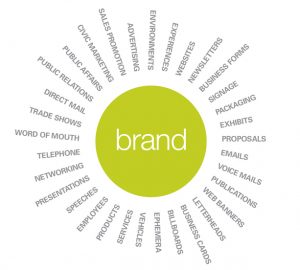

We’re all inundated with questions about the “future of the agency model” and the ongoing debate between full service agencies and specialty shops. Both have merit. Still, I come down on the side of “full-service.” It’s a tired term, but what it represents now is more important than ever.
In today’s always-on marketing world, brands need partners who have a deep understanding of their business. Full service agencies are built to do just that. Full service not only means having the broad, top-down view to recognize opportunities and issues, but also the strength, resources and capability to make a big impact in a way that specialty shops typically can’t. Why? It’s inherent in their model. They specialize. A channel. A medium. That one really potent thing. Full service is perched up high on the balcony, with a view of all of it.
 Don’t get me wrong. Specialty is necessary AND welcome. There will always be a need for specialists. People who can shine a light on a specific area of the business and make it work better. In my experience, consistency of message and a deep understanding of the brand are key. The pinpoint expertise and agility of specialty shops — like digital buying or content creation — lives most comfortably and successfully under a group who has responsibility for being the strategic lead. Development and application of marketing and advertising strategy is not for the uninitiated or the faint of heart. It’s hard work and a long damn road to stay the course. Full service groups tend to have the tenacity and the patience to watch a strategy roll out successfully — and have the depth and breadth of thinking to manage and tweak execution as needed. After all, they’re seeing the bigger picture.
Don’t get me wrong. Specialty is necessary AND welcome. There will always be a need for specialists. People who can shine a light on a specific area of the business and make it work better. In my experience, consistency of message and a deep understanding of the brand are key. The pinpoint expertise and agility of specialty shops — like digital buying or content creation — lives most comfortably and successfully under a group who has responsibility for being the strategic lead. Development and application of marketing and advertising strategy is not for the uninitiated or the faint of heart. It’s hard work and a long damn road to stay the course. Full service groups tend to have the tenacity and the patience to watch a strategy roll out successfully — and have the depth and breadth of thinking to manage and tweak execution as needed. After all, they’re seeing the bigger picture.
We’ve moved through the cycle of full-service, to boutiques and back again. Still, I hear the argument that full service agencies are lazy and bloated and bureaucratic and on and on and on. (I’m shaking my head here). On what planet is that happening these days? Here’s what everyone knows to be true. Full service agencies compete. They’re built for it and thrive on it. Because of that, working models have been streamlined, belts are stylishly tightened and awareness of reality is king. We get it. And we’ve adjusted accordingly. Simple as that.
 K.R. Sridhar, the founder of Bloom Energy, a fuel-cell company said, “When you are just obsessed about the competition, you end up killing yourself as a byproduct — because you are not focused on the customer. When you obsess about the customer, you end up defeating your competition as a byproduct.”
K.R. Sridhar, the founder of Bloom Energy, a fuel-cell company said, “When you are just obsessed about the competition, you end up killing yourself as a byproduct — because you are not focused on the customer. When you obsess about the customer, you end up defeating your competition as a byproduct.”
That level of focus and understanding is what a full-service approach brings to our clients’ businesses.
It’s not about ownership. It’s about partnership.
 Victoria Webb, Director of Client Services
Victoria Webb, Director of Client Services






